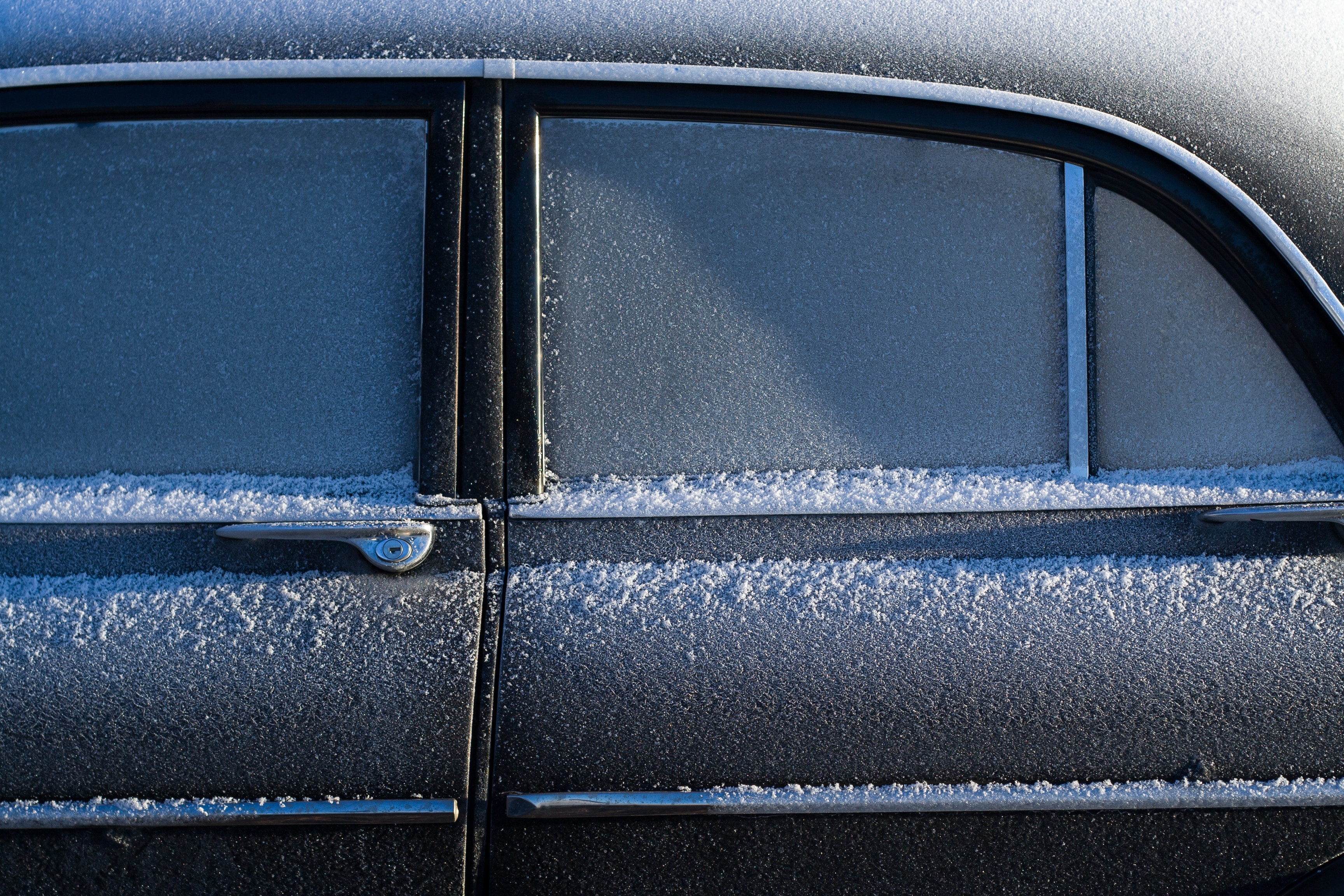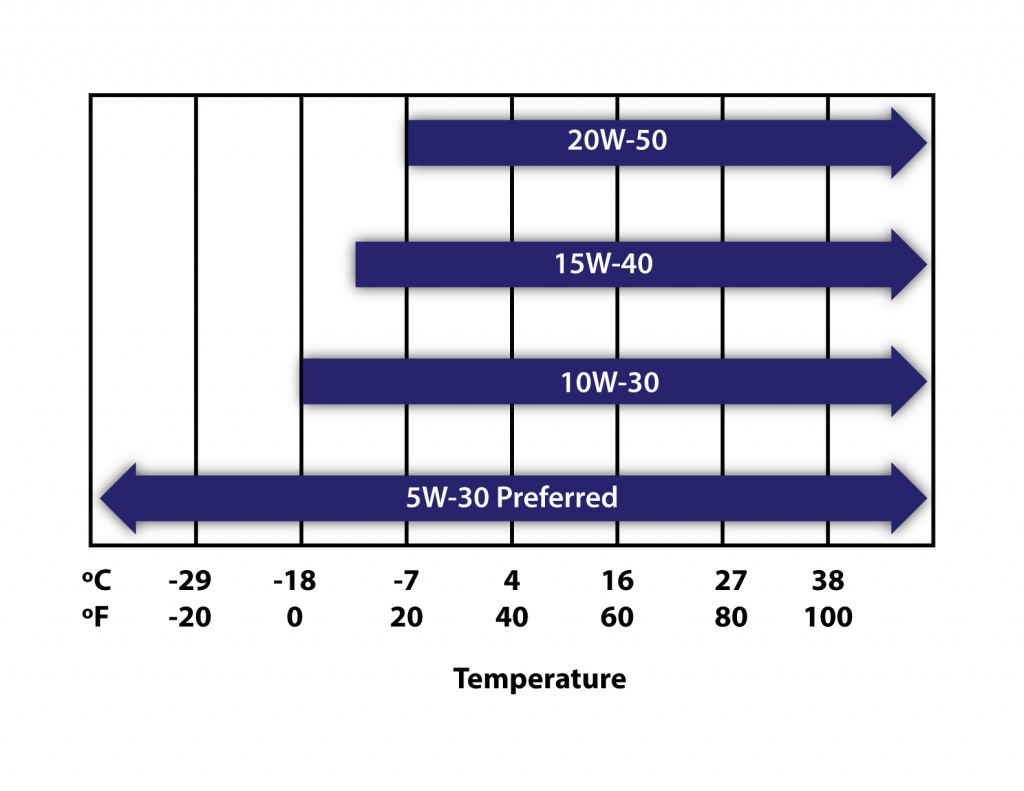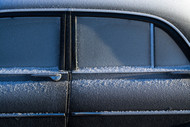How Does Cold Weather Affect Your Car Lubricants?
By on Jan 21 2022

Just as cold, winter weather affects you (we typically don't don down layers in the middle of July), so, too, does it affect your vehicle. But while we have the privilege of layering up with thick knit scarves, hats, and gloves and going into our nicely heated homes, your car doesn't have that luck. The poor thing.
No, no matter how much you love your car, you can't exactly bring it in the house with you to warm up by the fire. Theoretically, you could wrap it up in blankets to defend it from frost, but your neighbors might start to talk.
One of the best ways to protect your car in the wintertime (short of knitting an SUV-size hat) is to understand how, exactly, winter affects your vehicle. Here are a few ways the cold can wreak havoc on your automobile's fluids.
Changes in Viscosity
Oils and lubricants are key components to maintaining a healthy engine so your vehicle can go for miles and miles. Viscosity is the most important property of a lubricant and the single most important factor in determining engine health. Because of this, it's important to know how winter affects your lubricants.
In case you need a refresher, viscosity is the measure of a fluid's resistance to flow (its thickness). Essentially, the thicker the fluid is, the more resistance to flow it will demonstrate. For example: Vaseline is highly viscous, whereas water has an extremely low viscosity.
In cold temperatures, your car's fluids actually change in viscosity: they become more viscous. This includes your oil, antifreeze, and other lubricating fluids. Think of it like honey: when you heat it up, it becomes incredibly easy to pour. But if you chill it, it thickens good luck pouring it out of the jar.
Motor Oils
When choosing the right lubricant for your car, OEM specifications are key because you need that oil to properly lubricate your engine. Too thin or too thick and it's essentially useless. It is well-known that most engine wear occurs at startup due to the time it takes the oil to coat all metal surfaces.a lubricant's ability to provide initial lubrication despite the cold is important.
Automotive oils typically experience a relatively wide range of temperatures at least they do here in the Northeast. Multi-viscosity oils compensate for these temperature changes with viscosity index improving additives. When it comes to motor oil with a W" (think winter), such as 5W-30, a lower number refers to a lower pour-point. The second number "30" is the operating viscosity of the oil based on the engine being warmed up (about 200 degrees Fahrenheit). This particular multi-viscosity weight will perform like an SAE 5W when cold, but an SAE 30 when hot.
Straight-weight oils (such as an SAE 30) do not contain VI improvers to compensate for temperature fluctuations. In the past, almost all automotive engine oil was straight-weight and drivers living in cold regions would use a different oil in the winter to compensate for lubricant thickening. However, while these worked great in the cold, they became too thin at operating temperature. Modern multi-viscosity oils make this practice of switching straight-weight oils unnecessary.
Still, less-quality oils can exacerbate the problem if they don't have the right types of additives or too much paraffin content, for example. For easier winter starting, follow OEM recommendations and look for a lubricant with excellent oil flow and bearing protection.

If possible, it's a good idea to change your oil with the seasons. A contaminated or dirty oil will greatly affect how your oil's viscosity changes with temperature.
New oil and a new oil filter will help keep everything running properly in the winter.
Transmission Fluid
While cold transmission fluid might not be at the forefront of your mind during cold winter starts, it is affected and it should be considered because it can impact performance and wear. While automatic transmissions can noticeably shift harder in the cold, cold-induced transmission performance issues are most noticeable for drivers operating manual transmissions. Like with lubricating oil, transmission fluid thickens in the cold. Because of this thickening, the synchronizers (in manual transmissions) can't spin as quickly as they need to. This can impact your ability to shift until the fluid is warmed enough to provide proper flow and protection.
Changing to a full synthetic transmission fluid can eliminate these issues as well as provide fuel savings.
Gear Lubes
Gear lubricants are used to provide reliability and durability during the service life of gear equipment, including those found in automotive applications. As with engine and transmission performance, proper lubrication is essential for full-quality functioning. Due to their function, gear lubricants have higher viscosity, and are less efficient at cold temperatures because the gears require more energy to turn, which results in reduced fuel economy. Gear lubricants, too thick because of cold temperatures, can starve internal components that require splash lubrication, which can cause failure.
Low-temperature viscosity properties are important factors when considering gear lubricants. Synthetic gear lubricants tend to have better low-temperature pumpability.
Diesel Fuel
Diesel fuel contains wax, which has a high cetane value. Cetane is an important component in diesel fuel, however, the wax can crystallize in cold temperatures. This is known as the cloud point. When diesel reaches its cloud point, these wax crystals (which gel together and solidify) can clog the fuel filter and starve the engine of fuel. No fuel in the engine means you're not going to get your vehicle to start. The cold filter plugging point (CFPP) refers to the point at which the crystals clog the fuel filter.
To avoid diesel fuel gelling in the winter, use specially-formulated Diesel Fuel Anti-Gels. These additives are designed to prevent the crystallization and eventual gelling of the paraffin present in diesel fuel, treating the problem before it becomes a problem.
Don't get caught in the cold--prepare your vehicle for winter.
Additional Sources:
https://jalopnik.com/what-does-cold-weather-do-to-...
https://www.amsoil.com/newsstand/auto-and-light-tr...
http://www.popularmechanics.com/cars/how-to/a3891/...






